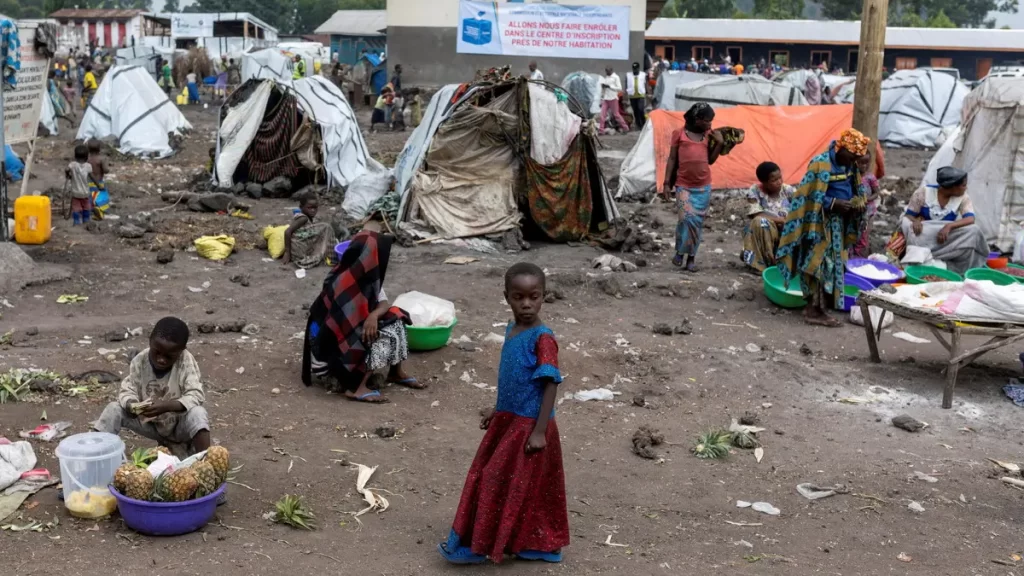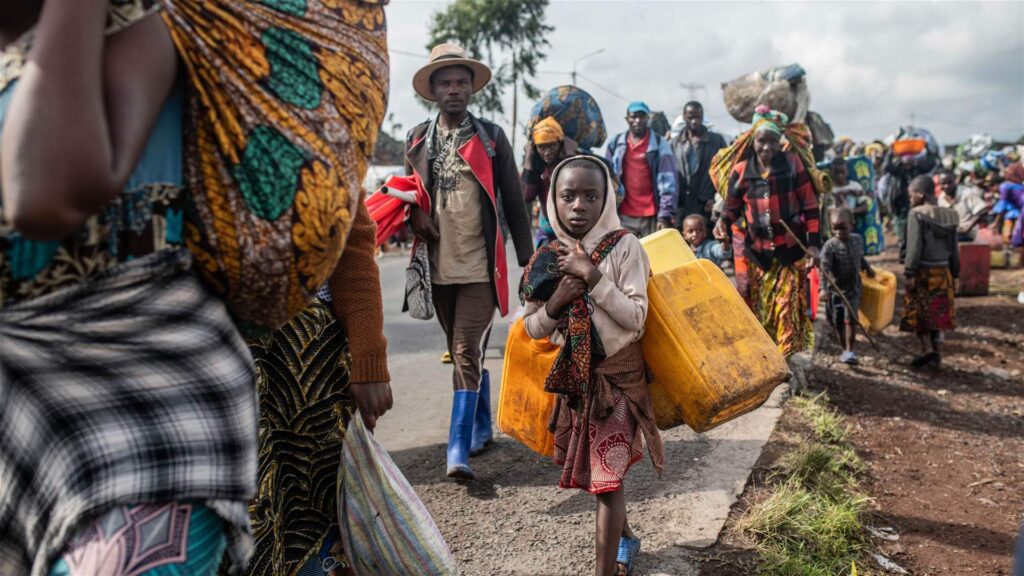The United States has announced a significant humanitarian aid package of nearly $414 million for the Democratic Republic of Congo (DRC), where over 25 million people—almost a quarter of the country’s population—are in urgent need of assistance. This exclusive information was revealed to Reuters by U.S. Ambassador to the United Nations Agencies for Food and Agriculture, Jeffrey Prescott.

Prescott stated that a substantial portion of the aid would be channeled through United Nations agencies and aid groups to provide critical support in areas including food assistance, healthcare, nutrition, shelter, water, sanitation, and hygiene. “This funding also includes direct support (of) agricultural commodities from American farmers,” Prescott added, highlighting the multifaceted nature of the aid package.
The announcement, set to be formally made in Kinshasa by Prescott alongside U.S. Ambassador to the DRC Lucy Tamlyn, brings the total U.S. funding for the DRC since October to an impressive $838 million. This substantial commitment comes in response to escalating crises in the country, including ongoing conflicts and health emergencies.
The DRC’s eastern region has been particularly affected by renewed fighting between the Congolese army and M23 insurgents since 2022. This conflict has displaced over 1.7 million people, contributing to a record total of 7.2 million displaced Congolese, according to UN estimates. The humanitarian situation is further exacerbated by severe food insecurity, with the World Health Organization warning that more than one million children are at risk of acute malnutrition.

In addition to addressing food and displacement issues, the U.S. aid package includes $10 million for health assistance and a donation of 50,000 mpox vaccines. The current mpox outbreak in the DRC has affected around 27,000 people and claimed over 1,100 lives, mostly children, since the beginning of 2023.
Prescott expressed hope that this substantial U.S. contribution would encourage other countries to “step up as well” in supporting the DRC. The move comes as the UN’s $2.6 billion aid appeal for the DRC this year remains only one-third funded, underscoring the critical need for international support.
This significant aid package demonstrates the United States’ commitment to addressing humanitarian crises in Africa and highlights the complex challenges facing the DRC, including conflict, displacement, food insecurity, and health emergencies. As the situation in the DRC continues to evolve, the international community’s response, led by efforts such as this U.S. aid package, will be crucial in mitigating the impact of these crises on millions of vulnerable Congolese.



